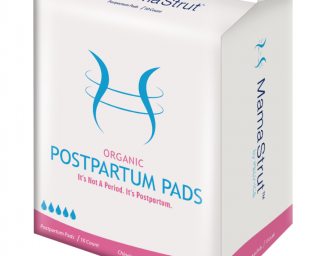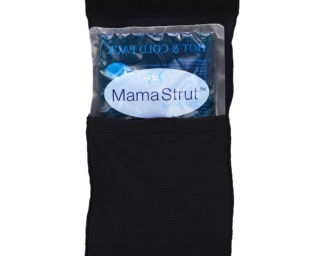
One of our favorite moments here at Mama Strut is when we get to collaborate with thought-leading mamas trying to help other mamas. There’s a lot of confusion around how to eat when pregnant and there is so much information to take in. That’s why we decided to ask an expert in nutrition and mama-to-be to help shed some light on diet during pregnancy.
“Natural, organic and unrefined foods speak a language your genes understand. And when your food communicates nicely with your genes, they’ll express themselves properly and healthily so you can begin feeling that you’re actually living and not just surviving.” ― Thorbjörg HafsteinsdottirIntroducing Anna
Welcome! My name is Anna, and I run the website TeachEatRepeat.com and the Instagram @TeachEatRepeat. I am an Integrative Nutrition Health Coach, and I help women reduce symptoms of inflammation, like bloating, stomach distress, and weight gain, through small food and lifestyle changes. I used to be a classroom teacher, and it was while teaching I discovered I had an autoimmune disease, and as a result, discovered the power of whole foods in my health.
When my husband and I were thinking about getting pregnant, I delved into the WIDE WIDE world of pregnancy nutrition, to see what I could do to get my body ready to conceive and also carry a healthy and happy baby. While there are MILLIONS of suggestions, and pieces of advice out there, I think there are a few main tenants that can really help put you, your baby, and your family on the road to success.
Did you know that the pre-natal environment you provide for your offspring through what you eat, drink, breathe, or stress about is what your child will come to expect of the world he/she is about to enter?
It literally shapes them for life.
Deep Breath. I said that, but I also want you to relax. Millions of healthy babies are born to moms who are malnourished because of circumstance, eat fast food every day, and who don’t exercise. That said, when you know better, you do better. My goal with this article is to help you find the balance between ideal and sustainable—perfect nutrition and what’s workable in your real, everyday life.
Your motto during pregnancy should be: do YOUR best. (In fact, I would argue that pre-natal nutrition is perhaps MORE important than during your pregnancy). Don’t compare your fitness or diet to anyone else’s because everyone’s body handles pregnancy differently, depending on what her unique little baby needs. In your first trimester, you may not be able to stomach a lot of these foods, and that’s okay. Chronic stress about not eating a healthful diet is going to be WORSE for your baby than eating a pizza, or chicken nuggets, or a bagel (can you tell I speak from experience?) Focus on what you CAN eat, and try to make it as high of quality as possible. Only want mac & cheese? Try the brand “Banza” which is made from chickpeas, so it contains more fiber, protein and vitamins than other pastas!
The Breakdown
There are so many ways you can consider pregnancy nutrition: by macronutrient values, by micronutrient values or even by categories of food. But I’d rather you focus on food quality. Focus on, real and whole foods, (closest to the way nature made them.) Think of skin, not package! If your great grandmother wouldn’t recognize it…don’t eat it! Here are the foods you should focus on:
- Vegetables – nutrient-dense, low in calories, low in fat, loaded with water and full of phytochemicals (compounds in plants thought to have anticancer and anti-inflammation properties). Vegetables give us LIFE. (Organic is best)
- Fruits – loaded with many beneficial compounds, nutrients, flavonoids, antioxidants, phytochemicals, and polyphenols (micronutrients that we get in plants that can help with digestion, weight management and lifestyle disease prevention). They are nature’s sweet treat. (Organic is best)
- Whole grains and starchy vegetables – a major source of complex carbohydrates, dietary fiber, minerals, and B vitamins. They help stabilize our blood sugar and provide all kinds of benefits to the body and brain
- Legumes (beans) – supply our bodies with many important nutrients, antioxidants, fiber and phytochemicals. They are high in protein and when combined with grains, they make a complete protein.
- Nuts and seeds – loaded with fiber, phytochemicals, protein, healthy fats, and polyphenols.
- Unprocessed foods – the more natural the better. Stay away from boxed foods as much as possible. They are loaded with all kinds of junk.
- Organic – (meats, eggs, fish, vegetables, fruits, milk, nuts, beans, etc.) Organic is a labeling term that indicates that the food or other agricultural product has been produced through approved methods that integrate cultural, biological, and mechanical practices that foster cycling of resources, promote ecological balance, and conserve biodiversity. Synthetic fertilizers, sewage sludge, irradiation, and genetic engineering may not be used.
- Fermented foods rich in probiotics – For example Kefir, miso, kimchee, sauerkraut and yogurt. Be careful of added sugar in flavored yogurt or kefir.
- Meats from grass-fed animals and eggs from cage-free, organically fed chickens – higher in omega 3, rich in DHA, vitamin A, D, E, K, higher in CLA (fat- burning) and higher in tryptophan, which helps with sleep and mood.
- Good fats – cold pressed olive oil, wild fish, virgin coconut oil, avocado, nuts and seeds. If you have a hard time digesting nuts or seeds, you can soak them for 6-7 hours. Get your omega 3’s!
- Fiber-rich foods – 20-30 grams a day from complex carbohydrates, fruits and vegetables.
This is a huge list. When composing your meal, try to think….Do I have a…
- Protein
- Green veggie
- Starchy veggie or fruit
- Source of healthy fat
If you do, your meal is healthy, and you don’t need to worry about counting anything. I wish you a healthy, and happy pregnancy! For more information, please visit my website TeachEatRepeat.com or email me at anna@teacheatrepeat.com. I look forward to hearing from you!
The materials and content within this blog post are intended as general information only, and are not to be considered a substitute for professional medical advice, diagnosis, or treatment. This article is going to focus on real, whole-foods, rather than supplements or individual nutrient recommendations. Your dr. can tell you how much of each nutrient he or she recommends, as the recommendations are generally standard, but only your dr. can read your blood tests and know what you’ve got enough of or what you’re lacking.




